Announcements
Bookmark this page as your main entry point to the course website. That way, you’ll be sure to see any changes and other information I’ve posted here.
Ultimate Deadline for Late Papers and Resubmissions
18 December 2022
As previously announced in class, the absolute deadline for all late papers and reversible deduction resubmissions is Monday, December 26. No papers or resubmissions will be accepted after that date unless an incomplete has been mutually agreed prior to that deadline owing to emergency circumstances.
CURRENT ANNOUNCEMENTS
Final exam grades posted
22 December 2022
The grades for the final exam have been posted on the My Grades page.
Please upload any missing essays or resubmissions for reversible deductions to BlackBoard by end of day Monday so that your grade reflects all it can reflect.
Final course grades will be posted to the My Grades page and CUNYfirst on Tuesday.
ARCHIVE
Research Essay grades and markups posted
21 December 2022
The grades and markups for the Research Essay are posted on the My Grades page on the course website.
If you have any questions about the grades, comments, or deductions, please don’t hesitate to seek me out by email.
Reversible deductions. Some of you may find that you received “reversible deductions” for issues relating to formatting and citations. The good news is, those are points that you can get back. Check the cover page of your markup to see if there are any check marks and points taken off next to the reversible deductions. If there are, I made notes on the cover sheet or in the essay about the issue, and included a handout with the requirements.
Please resubmit your essay to BlackBoard with those problems fixed, and I’ll be in a position to reverse those deductions. Only reversible deductions can be reversed, so don’t resubmit for anything other than reversible deductions.
Missing essays. If you have not gotten your paper in, please do so as soon as you can. In terms of your course grade you’re better off with any grade, even with a lateness penalty, than a zero for the assignment. Remember also that the lateness penalty is capped at a maximum of 30 points, so turning your paper in, even very late, is better than not doing so.
Response Writeups posted
14 December 2022
To help you prepare for the final, I have posted the Response Writeups I have received so far, summarizing and commenting on our class discussions on the primary source readings.
The link is below and is also posted on the Exam page.
Video of this week’s lecture posted
14 December 2022
Once again, I slapped together a quick video of this week’s lecture for those unable to attend or who wish to review some of the things discussed later. As before, the audio is unedited.
It is posted on the Videos page on the course website.
Welcome to Week 14!
12 December 2022
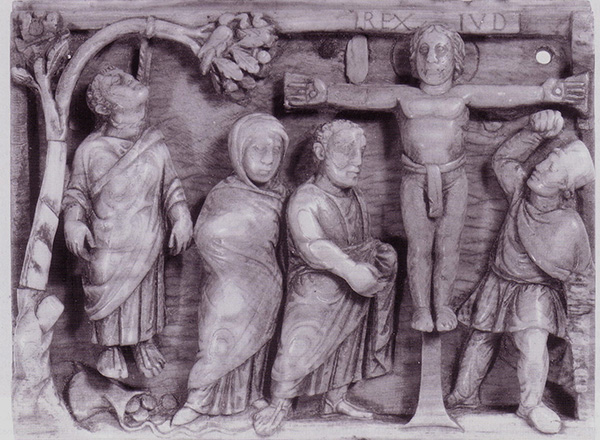
This week we’re finishing with the Romans and then, appropriately, transitioning to early Christianity. What’s so different about Christianity that it spreads across the ancient world, inciting on the one hand the abandonment of cultural beliefs and, on the other hand, the persecution of Christians by political and religious authorities? How are the content and rituals of Christianity like and unlike its pagan and Jewish forebears? Does what it means to be “Christian” change over time, and why?
After that, our class meetings are completed save for the final exam on Thursday. Please make sure to consult the notes and advice regarding the exam on the Announcements page, and the review materials posted on the Exam page.
Email me with any questions at all that you might have about the exam or the course materials or anything we’ve been studying. Good luck!
Quiz #9 grades and markups posted
7 December 2022
The grades and markups for Quiz #9 are posted on the My Grades page on the course website. I strongly recommend spending a moment to take a look at my commentary on the quiz, as I use these to emphasize the key take-aways from last week’s topics:
- The Quiz Notes for Quiz #9 are live on both the Quiz Notes page and the Print/PDF page.
Quiz #8 grades and markups posted
7 December 2022
The grades and markups for Quiz #8 are posted on the My Grades page on the course website. I strongly recommend spending a moment to take a look at my commentary on the quiz, as I use these to emphasize the key take-aways from last week’s topics:
- The Quiz Notes for Quiz #8 are live on both the Quiz Notes page and the Print/PDF page.
Video of this week’s lecture posted
7 December 2022
Once again, I slapped together a quick video of this week’s lecture for those unable to attend or who wish to review some of the things discussed later. As before, the audio is unedited.
It is posted on the Videos page on the course website.
Reviewing for the Final Exam
5 December 2022
I’ve updated the final exam page. On this page you’ll find information about the final and review materials. The exam will take place Thursday, December 15 from 1:00 to 3:00 p.m.
The review sheet is not designed to be a list of answers so much as questions you can use to guide you toward the areas you want to focus on in your review. As you read through the questions on the review sheet, those you have a sense of how you might answer are lower priority for review than those questions you’re not sure how you would answer; those you’d then want to go back and spend some time reviewing in your notes, the readings, the videos, quiz notes, and class discussions.
Also note that the terms are a useful way of finding concepts you need to go back and review, so I’d advise stepping through the terms at the end of each topic and making sure you have a sense of what they mean and why we’re studying them.
To prepare for the essays, I suggest that you focus on what you would consider to be four or five of the major themes of this course, and think about possible questions that relate to those topics across the periods and transitions we’ve explored. For the essay you’ll be asked to give three examples, so you can sketch out a question about a recurring topic in the course, your perspective on that question, and three similar or contrasting examples of that demonstrate that perspective.
Please take a look at the review sheet for details on the exam’s content and structure. Once you’ve read through the review sheet, if you have any questions about the exam or about any of the topics covered in it, please don’t hesitate to come to me or bring them up in our next class.
To get to the final exam page, click on “Exam” in the navigation index, or follow the link to the “Final Exam page” below.
Welcome to Week 13!
5 December 2022
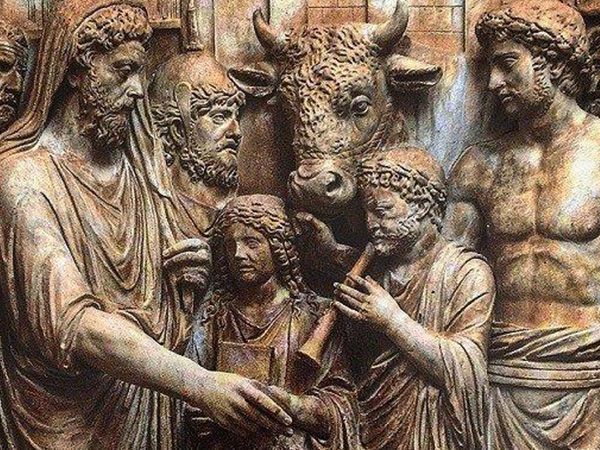
This week we’re talking about the Romans. Because the Roman empire absorbed so many cultures it’s customary to see many ancient cultures, especially the Greeks, at least partly through a Roman lens. But religion is a case where the reverse is true. Late in Roman history, when the Romans ruled over Greeks and had to be acceptable overlords to them, the Roman gods were equated with Greek gods, where in fact the Roman conception of divinity was very unlike the Greeks’. What did the Romans expect from the gods? What role did the gods play in political affairs, and in everyday life?
The effects of empire on religion were characteristically Roman, as well. What kinds of challenges did dominion pose for the Roman religion? How does an empire cope with the religious diversity of its subject peoples?
We’re also looking at law and ethics. One of the reasons religion was invented was to contrast the wild forces of nature with the ordered human community, but the expectations of religion and the rules imposed by civic authorities were always separate and sometimes misaligned. Given that the gods are unbound by human morality, how does religion become associated with ethics? What kinds of things might fall under the hands of religious law rather than the laws of the state? The Romans were pioneers in the development of systematic law codes and the study of judicial precedent—how relevant to that was their understanding of the gods and the Romans’ tendency to superstition?
Looking forward to discussing all of this with you on Tuesday. See you then!
Video of this week’s lecture posted
29 November 2022
Once again, I slapped together a quick video of this week’s lecture for those unable to attend or who wish to review some of the things discussed later. As before, the audio is unedited.
It is posted on the Videos page on the course website.
Notes and reminders about the Research Essay (due Monday, December 12)
28 November 2022
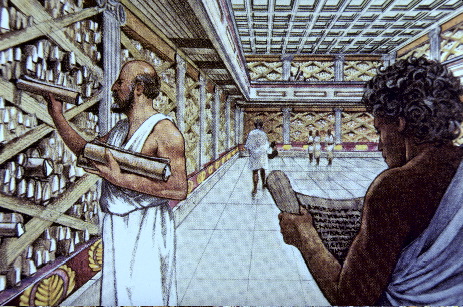
Here are a few brief reminders about the Research Essay, which is due very soon on Monday, December 12.
Thesis statement. Make sure you have an introduction with a thesis statement (your argument asserting your position on the question/problem being addressed) and a body that described and discusses three examples from the sources supporting your thesis statement. For models and explanations on how to do this, see “Writing a Position Paper” (a.k.a. “The Elephant Pamphlet”), which is on the Resources page.
Focus on what the work you chose is telling you. Your thesis and the three sections of your paper should be built around three things that the work you chose to study tells us about what the writer and his or her culture thought was important about the gods and their relationship with mortals and the Earth. The additional research with other sources is there to support the arguments you are making about the work you chose to study and its depiction and interpretations of the gods and the mortal-divine connection.
Sources.
- Including the primary source you are studying, you must use at least three sources, which can be primary or secondary; tertiary sources (including textbooks and most web pages) are not allowed. See the Sources page in the Research and Citations Center for more.
- All assertions must be supported by evidence.
Requirements for all papers. You must adhere to the requirements for all papers (listed on the Essay Musts page). Not meeting the requirements for all papers will mean a lower grade.
Template. There is an MS Word template already set up with some of the formatting I require on the Resources page. If you use Word I strongly recommend making use of this template. There is also a Google Docs template.
Late papers. As per the syllabus, late papers are marked down by ten points per class meeting, up to a cap of thirty points. Avoid this penalty and block out the time you need to prepare, write, and review your paper so that it can be submitted on time.
BlackBoard. All essays are uploaded to BlackBoard. Look for “Upload Assignments Here” in the left-hand menu. Your essay needs to be uploaded as a Word (preferred) or PDF file attachment, not pasted in as text submission. If you use a browser-based word processor, download or export to a Word document and upload that.
I’m happy to discuss any aspects of your sources or the paper, so please come to me if there’s anything you’re not sure about. I’m looking forward to hearing your interpretations of your chosen depictions of ancient religion!
Welcome to Week 12!
28 November 2022
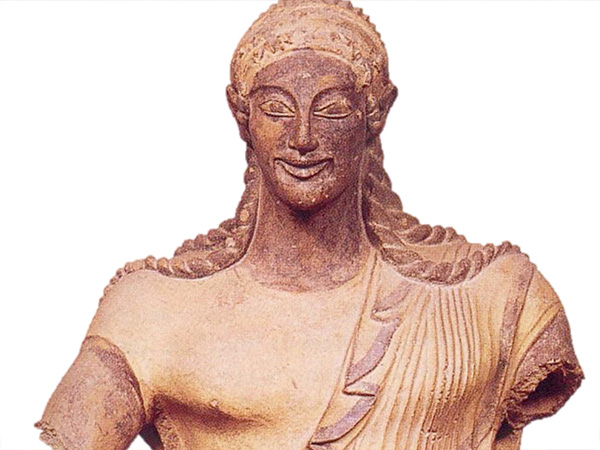
This week (after we finish up with a bit of material from last week) we’ll be talking about the Etruscans, an Iron Age city-state civilization inhabiting the northern coastal plains of Italy. There’s a lot of resonance with the Minoans—both are language isolates, for example, their tongues not related to any other language (or each other). They were both successful indigenous city-state cultures that were already present and thriving when the alien Indo-Europeans showed up en masse from the north. And both cultures were then emulated, surpassed, and subsumed by those Indo-Europeans. For the Minoans, it was the Mycenaean Greeks that swallowed them up, leaving little behind of the earlier culture; for the Etruscans, it was the Romans that did them in.
We get out understanding of the Etruscans largely through a Roman filter, especially their religion—not just the relics they left behind, but the way their influence shaped the Romans’ own understanding of the gods, either in emulation or rejection. A lot of the Etruscan culture is presented as strikingly exotic, in order to contrast with Roman norms. But the Etruscans were themselves influenced by the Greeks, with whom they conducted a massive amount of trading along the Italian coast (the boot of Italy and Sicily being the site of many splendid Greek colonies), and their religion and mythology not least; the mirrors and decorations they left in their tombs depict Greek mythological figures as well as Etruscan ones, and it was the Etruscans who picked up on the legends of Herakles (whom they called Hercle) and made him a wandering hero of Italy for the Romans to later absorb. So the question becomes: what can we tell about the native Etruscan perception of the gods, and how different was it from that of the Greeks and Romans with whom they interacted?
Also this week we’re looking at the role of writing in religion—perhaps ironic given so few substantial examples of Etruscan writing hav survived. A good deal of what we do have from Etruria, though, is religious in nature (including a linen book of rituals that survived only because it made its way to Egypt and was recycled as rags to wrap a mummy!). Under what circumstances are religious components written down, and how does that fact change things? How is this different for pagan religions versus monotheistic ones?
Looking forward to discussing all this with you. See you Tuesday!
Quiz #7 grades and markups posted
24 November 2022
The grades and markups for Quiz #7 are posted on the My Grades page on the course website. I strongly recommend spending a moment to take a look at my commentary on the quiz, as I use these to emphasize the key take-aways from last week’s topics:
- The Quiz Notes for Quiz #7 are live on both the Quiz Notes page and the Print/PDF page.
Quiz #6 grades and markups posted
24 November 2022
The grades and markups for Quiz #6 are posted on the My Grades page on the course website. I strongly recommend spending a moment to take a look at my commentary on the quiz, as I use these to emphasize the key take-aways from last week’s topics:
- The Quiz Notes for Quiz #6 are live on both the Quiz Notes page and the Print/PDF page.
Video of this week’s lecture posted
23 November 2022
Once again, I slapped together a quick video of this week’s lecture for those unable to attend or who wish to review some of the things discussed later. As before, the audio is unedited.
It is posted on the Videos page on the course website.
Proposal responses posted
21 November 2022
The proposal responses are posted on the grading page. I am very sorry for my tardiness in completing this work. Let me know if you would like the response PDF emailed to you directly.
I am happy to discuss your research options and how you approach your arguments further in office hours or via email. I’m really looking forward to these papers; there are some strong topics with lots of possibilities, and I’m going to enjoy exploring them with you in your finished submissions.
Remember, your main focus is on discussing three sections or passages from the primary source you chose and using these to gain insight into the religion of the culture that produced that work. The additional research is to support your interpretations of the primary source work you’re analyzing for this paper.
Links: Here are a few links you might find useful:
- Online Ancient Texts and Translations: Links to online ancient texts in translation.
- Leonard Lief Library: CUNY OneSearch access. Do your search and then filter for Full-Text Online and Peer Reviewed Journals. You can also filter Resouce Type to Articles, Books, and Book Chapters.
- Attalus Index of Names: enter a name and matching names will appear, with ancient textual references to that person organized chronologically by event and linked to the actual ancient texts.
- LacusCurtius: Into the Roman World: One of the best archives of ancient Roman texts in English translation.
- WorldCat: Bibliographic info on practically any book.
Important reminder about sources: You may use only primary and secondary sources for this paper. You need 3 sources minimum; the mix of primary/secondary will depend on the topic. The textbook (Johnston) counts as a secondary source for any chapters that are clearly based on primary sources. The primary source excerpts assigned for weekly discussion are fair game, but you should find the original texts rather than using these edited excerpts.
Welcome to Week 11!
21 November 2022
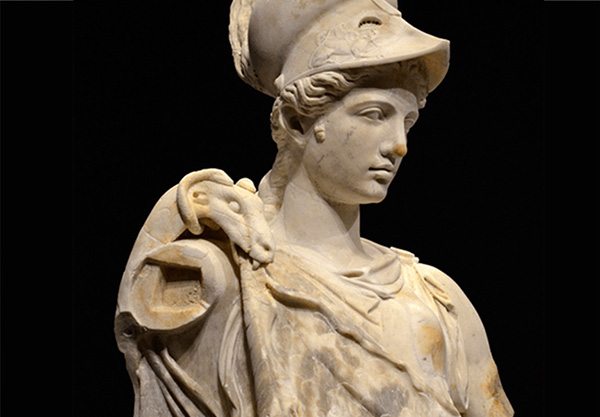
This week we’re talking about the Greeks, whose dominance of ancient literature has made them the first culture a lot of people are likely to think of in relation to ancient religion. What’s ironic is that the Greek perception of the nature and role of the gods, and the way ordinary Greeks experienced religion, were strikingly anomalous compared with the other polytheistic societies we’ve looked at. What do you think helped shape the unusual Greek take on religion? Was the Greek attitude toward their gods part of what made their culture so influential?
We’re also looking at the topic of mystery religion, a phenomenon that first became important in the Greek east, especially under the Hellenistic and Roman empires. What kinds of beliefs and practices characterize a secret religion, and what determines who belongs to one and why?
Looking forward to discussing all of this with you on Tuesday. See you then!
Video of this week’s lecture posted
16 November 2022
Once again, I slapped together a quick video of this week’s lecture for those unable to attend or who wish to review some of the things discussed later. As before, the audio is unedited.
It is posted on the Videos page on the course website.
Quiz #5 grades and markups posted
14 November 2022
The grades and markups for Quiz #5 are posted on the My Grades page on the course website. I strongly recommend spending a moment to take a look at my commentary on the quiz, as I use these to emphasize the key take-aways from last week’s topics:
- The Quiz Notes for Quiz #5 are live on both the Quiz Notes page and the Print/PDF page.
Quiz #4 grades and markups posted
14 November 2022
The grades and markups for Quiz #4 are posted on the My Grades page on the course website. I strongly recommend spending a moment to take a look at my commentary on the quiz, as I use these to emphasize the key take-aways from last week’s topics:
- The Quiz Notes for Quiz #4 are live on both the Quiz Notes page and the Print/PDF page.
Welcome to Week 10!
14 November 2022
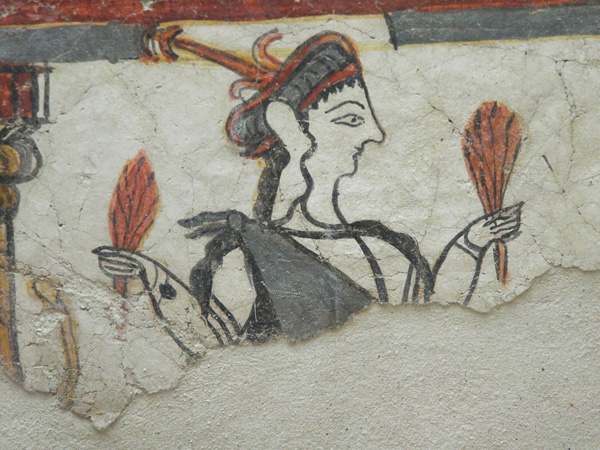
This week we’re talking about the first Greeks, the Bronze Age Mycenaeans. These Indo-European interlopers arrived in the Aegean region from the north after the indigenous Minoans’ palace-city commercial empire was already well established, and though they borrowed much from the Minoans—economics, urban architecture, social structure, even a writing system—their religious constructs seem to have been their own. What can we tell about the Mycenaean Greeks from the signs of their religion they left behind? How much of that is blurred by the tales of later Greeks after the Mycenaeans had all but destroyed their own civilization?
We’re also exploring a subject closely associated with the Greeks, myth. The Greeks used elaborate stories about the gods to shape their understanding of the world, but many other cultures did as well. What roles do tales about the gods’ conflicts, love lives, and exploits serve among ancient peoples? Are the functions different from culture to culture, or just the stories themselves?
Looking forward to discussing all this with you. See you Tuesday!
Video of this week’s lecture posted
9 November 2022
Once again, I slapped together a quick video of this week’s lecture for those unable to attend or who wish to review some of the things discussed later. As before, the audio is unedited.
It is posted on the Videos page on the course website.
Note: Last week’s meeting (Meeting 8, Egyptians) is also now posted and available.
Welcome to Week 9!
7 November 2022
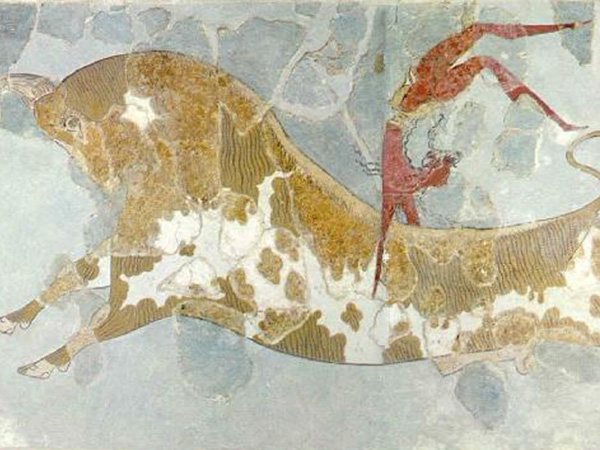
This week we’ll be talking about one of the more challenging ancient cultures to study in terms of religion, the Minoans. The difficulty we have studying the Bronze Age Cretans is multifaceted. First, they left little writing for us, and what we have, written in the ancient script called Linear A, is essentially undeciphered. As a result, our grasp of Minoan culture is almost entirely visual, based on the artwork, relics, and architecture they left behind in the Minoan palace-cities that have been excavated in modern times (most notably the fabulous city of Knossos).
This leads us to a second-level problem: some of these images seem religious in content to some modern observers, but both the extent to which they reflect religious iconography, and what they show if they do, have been strenuously debated for over a century. To what extent, do you think, might these visuals have been assigned sacred symbology simply because we tend to assume the gods played a major role in the lives of any given ancient society? How do we decide whether the mute imagery of a bygone civilization is religious in nature? How broad a scope does “religious” cover when interpreting cultural artefacts?
We’re also taking a closer look this week at ritual, a practice that’s been a running theme through many of our recent discussions. Here we’re looking at some case studies, including the scapegoat rituals in various cultures, old year/new year festivals, the procession (a ritual involving the people moving from one sacred place to another), and the links between ritual (prescribed actions) and myth (stories). Do rituals tend to be restrictive, holding a culture in the past, or adaptive? How do they compare to the seeming fluidity of mythology, do you think? If a similar ritual like the scapegoat ceremony occurs in many cultures, what does that commonality suggest about the needs served by religion—and what do the differences tell us about the societies in question?
I’m looking forward to discussing al of this with you. See you Tuesday!
Representations and Images Essay grades and markups posted
31 October 2022
The grades and markups for the Representations and Images Essay are posted on the My Grades page on the course website.
If you have any questions about the grades, comments, or deductions, please don’t hesitate to seek me out by email.
Reversible deductions. Some of you may find that you received “reversible deductions” for issues relating to formatting and citations. The good news is, those are points that you can get back. Check the cover page of your markup to see if there are any check marks and points taken off next to the reversible deductions. If there are, I made notes on the cover sheet or in the essay about the issue, and included a handout with the requirements.
Please resubmit your essay to BlackBoard with those problems fixed, and I’ll be in a position to reverse those deductions. Only reversible deductions can be reversed, so don’t resubmit for anything other than reversible deductions.
Missing essays. If you have not gotten your paper in, please do so as soon as you can. In terms of your course grade you’re better off with any grade, even with a lateness penalty, than a zero for the assignment. Remember also that the lateness penalty is capped at a maximum of 30 points, so turning your paper in, even very late, is better than not doing so.
Quiz #3 grades and markups posted
31 October 2022
The grades and markups for Quiz #3 are posted on the My Grades page on the course website. I strongly recommend spending a moment to take a look at my commentary on the quiz, as I use these to emphasize the key take-aways from last week’s topics:
- The Quiz Notes for Quiz #3 are live on both the Quiz Notes page and the Print/PDF page.
Welcome to Week 8!
31 October 2022
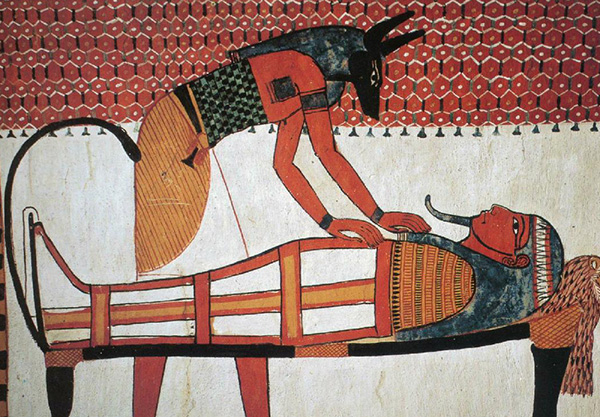
This week we’re exploring the religious perspectives in Egypt, which are in many ways remarkably distinct from the polytheistic religions of other cultures we’ve looked at. The way the pharaohs are seen as manifestations of gods and the manner in which Egyptian deities are visualized not as human men and women but as anthropomorphic animals are only the beginning of the fascinating distinctions that distinguish Egyptian divinity and mythology from those of their Semitic neighbors and other ancient peoples. The Egyptian take on the afterlife is also distinctive and characteristic of their culture. What do you think drives the distinctive outlook of the Egyptians? How does it inform our understanding of how ancient peoples relate to the gods?
We’re also taking a look at the perception of time and cosmology in the ancient world. The steady procession of time through various eras is in some ways a modern concept, in that in the ancient world chronology focused on the immediate—market intervals, ship journeys, the reigns of individual rulers—and important figures and events of the past beyond living memory tended to reside in under the general heading of legend and myth, with the most distant eras blurred and indistinct. This varies across ancient societies, however, and some cultures were more conscious of past, present, and future constituting a larger whole, just as the living world might be part of a larger cosmos including the heavens and the underworld. How does the perception of time and cosmos affect a people’s understanding of their role in the natural world and in human society? How does it inform their relationships with the gods?
Finally, we’re looking at the Papyrus of Ani, a plan for how a man about to pass into the afterlife should conduct himself in his meetings with the gods. What does it tell us about the Egyptian understanding of death and the divine world?
Looking forward to discussing all of this with you. See you Tuesday!
Video of this week’s lecture posted
26 October 2022
Once again, I slapped together a quick video of today’s lecture for those unable to attend or who wish to review some of the things discussed later. As before, the audio is unedited.
It is posted on the Videos page on the course website.
Israel and Judah timeline
24 October 2022
I made a little timeline that might help in navigating the reading on Israel and Judah.
Welcome to Week 7!
24 October 2022
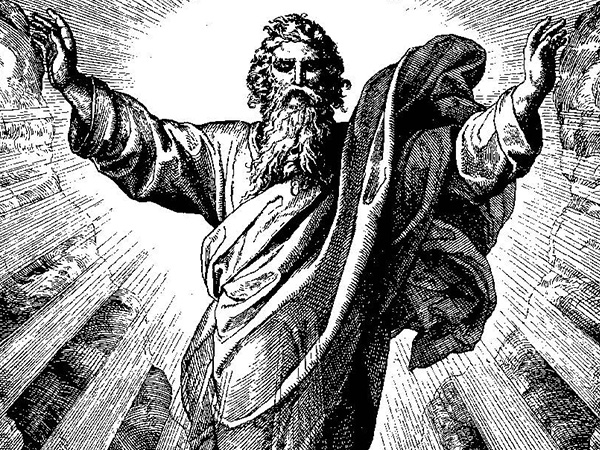
This week we’re discussing monotheism, a revolutionary force in the ancient world for the peoples that embraced it. How does monotheism alter a culture and its relationships with neighbors and conquerors? Is monotheism truly an abandonment of paganism, or a revision of its perspective on the divine world?
For the culture most noted for their espousal of monotheism, the Hebrews, their arrival at this point is, appropriately, a journey. What do you think most drove the Hebrews peoples fleeing Egypt—the tribes that became the kingdoms of Israel and Judah (the latter being the peoples we now know as the Jews)—to adopt monotheism? What kept it from being fully infused in Hebraic culture for so long?
Finally, before Christianity among major cultures only the Israelites and Judeans embraced monotheism. Why do you think it didn’t spread further into the pagan world.
Looking forward to discussing all of this with you. See you on Tuesday!
Video of this week’s lecture posted
19 October 2022
Once again, I slapped together a quick video of today’s lecture for those unable to attend or who wish to review some of the things discussed later. As before, the audio is unedited.
It is posted on the Videos page on the course website.
Welcome to Week 6!
17 October 2022
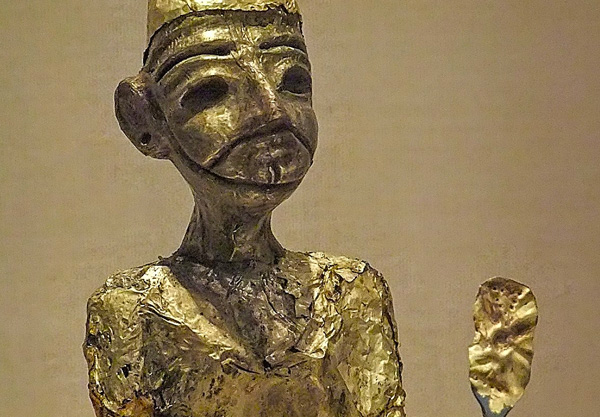
This week we’re looking at Syria and Canaan. Our view of the religion of the Canaanites is colored by the hostility of the Hebrews, who feared Canaanite influence on their people and so described the god Baal as the worst of demons. How does the religion of the various Semitic peoples of Syria and the eastern end of the Fertile Crescent compare with what we’re told? How do these forms of Semitic paganism compare to other Semitic cultures we’ve already looked at in Assyria and Babylon?
We’re also looking at pollution, sin, atonement, and salvation in the ancient world. These concerns will come to dominate religion in the Middle Ages, but in the ancient paganism ideas of sin, pollution, and purity were not so central to the dealings with the gods, and tended to vary widely from culture to culture. How was sin and its resolution most relevant in the ancient world?
Looking forward to discussing all of this with you on Tuesday. See you then!
Video of this week’s lecture posted
20 September 2022
Once again, I slapped together a quick video of today’s lecture for those unable to attend or who wish to review some of the things discussed later. As before, the audio is unedited.
It is posted on the Videos page on the course website.
Welcome to Week 5!
9 October 2022
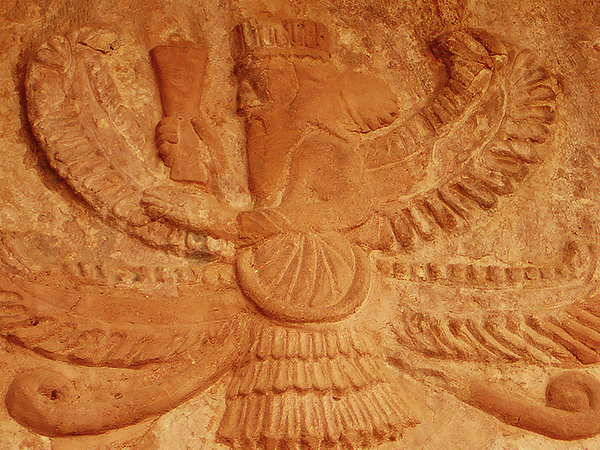
After our state-mandated hiatus we return to explore ancient Persia and the rise of a rare godly configuration for the ancient world: not one god, not many gods, but two gods in balance. Zoroastrianism, one of the native religions of ancient Persia, is perhaps the best-known example of dualism, where a god of light and order is complemented by a god of dark and chaos, though its origins and development are fascinatingly complex. How do you think this might affect a culture that embraces these ideas? How does the Iranian religious perspective compare to paganism as see in the other cultures we’ve explored?
Since our word “magic” derives from the magi, the mystical high priests of the Persians, it’s appropriate this week for us also discuss the role that magic was perceived to play in ancient religious belief and the superstitions that shaped ancient cultures. One element that made the magi “mystical” was that the closely guarded their secrets, so that the things they did seemed arcane and inexplicable. Is magic about social power—withheld by those who have it, or appropriated by those who seek to use it (curses and talismans, etc.)? What makes magic divisive, exploitative, or unifying? Was the importance of magic that it was divine—like the Greek Hekate mediating godly power into the human sphere—or that it was even more obviously a human construct than the gods?
Looking forward to discussing all of this with you in class and online. See you Tuesday!
Reminder: The Proposal is due Monday, October 24
8 October 2022
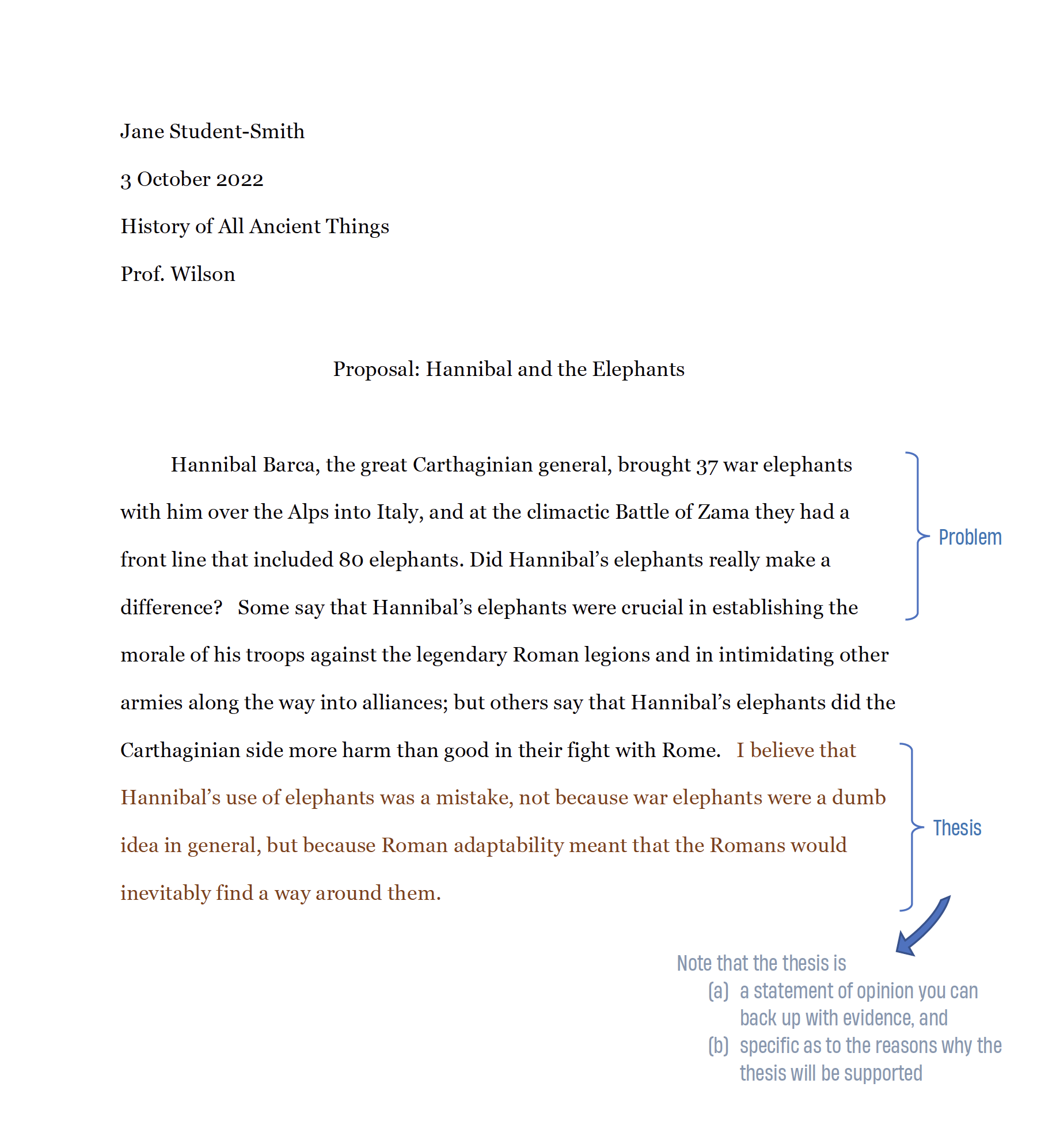
Here are a few brief reminders about the proposal for the Research Essay, which is due very soon on Monday, October 24.
The Research Essay, due at the end of the semester, is a 5- to 6-page researched essay breaking down the perspective on religion in one ancient work of your choice, using additional sources and/or scholarly research. There is a list on the course website of possible works and where to find them, including plays like Antigone, satires like The Pumpkinification of Claudius, essays like Cicero’s On Divination, and so on.
For the proposal I’m looking for: (a) which work you’re interested in studying; (b) a problem that can be argued about what that work tells us; (c) your proposed thesis—the argument you think you might be making; and any other thoughts about what you might want to explore or how you think you might go about supporting your argument in the research paper itself. I’ll give feedback on topic viability, scope, and possible primary and secondary sources.
A generalized sample of a proposal is on the Research Essay page. I’m happy to discuss possible ideas and approaches in office hours, after class, or by email.
Here’s what the syllabus has for the proposal assignment.
The assignment: The proposal is just a brief one-page preview of your research paper. It should include:
- The topic you think you’ll want to write about and the problem you’re interested in addressing. You should be able to delineate the problem by describing the opposing views people might take. To make sure you have two clear opposing opinions, you might want to express them in the form “Some say… . Others say….”
- Your preliminary thesis statement—in other words, what you think you might be arguing in your paper.
- Your thesis statement, both here and in the final paper, should be a statement of opinion that someone could disagree with. It can take the form of following up the description of the opposing opinions with your own: “I believe….”
- Remember that your thesis is provisional. You can change anything about your approach and interpretation after the proposal; in fact, uncovering information as you do your research makes refining or changing your initial assessments very likely.
Your proposal is structured like the introduction to your final paper, and may serve as the basis for it.
The proposal is not graded, but whether you submitted a proposal on time will be factored into the final grade for the position paper. I will give you feedback on things like the feasibility of researching your topic, whether the scope is too big or too narrow for a paper like this, and some possible sources you might want to look at.
No meeting this week, Part II
3 October 2022
See you on October 11!
Quiz #2 grades and markups posted
27 September 2022
The grades and markups for Quiz #2 are posted on the My Grades page on the course website. I strongly recommend spending a moment to take a look at my commentary on the quiz, as I use these to emphasize the key take-aways from last week’s topics:
- The Quiz Notes for Quiz #2 are live on both the Quiz Notes page and the Print/PDF page.
Quiz #1 grades and markups posted
27 September 2022
The grades and markups for Quiz #1 are posted on the My Grades page on the course website. I strongly recommend spending a moment to take a look at my commentary on the quiz, as I use these to emphasize the key take-aways from last week’s topics:
- The Quiz Notes for Quiz #1 are live on both the Quiz Notes page and the Print/PDF page.
No meeting this week
26 September 2022
See you on October 11!
Navigating the course website
21 September 2022
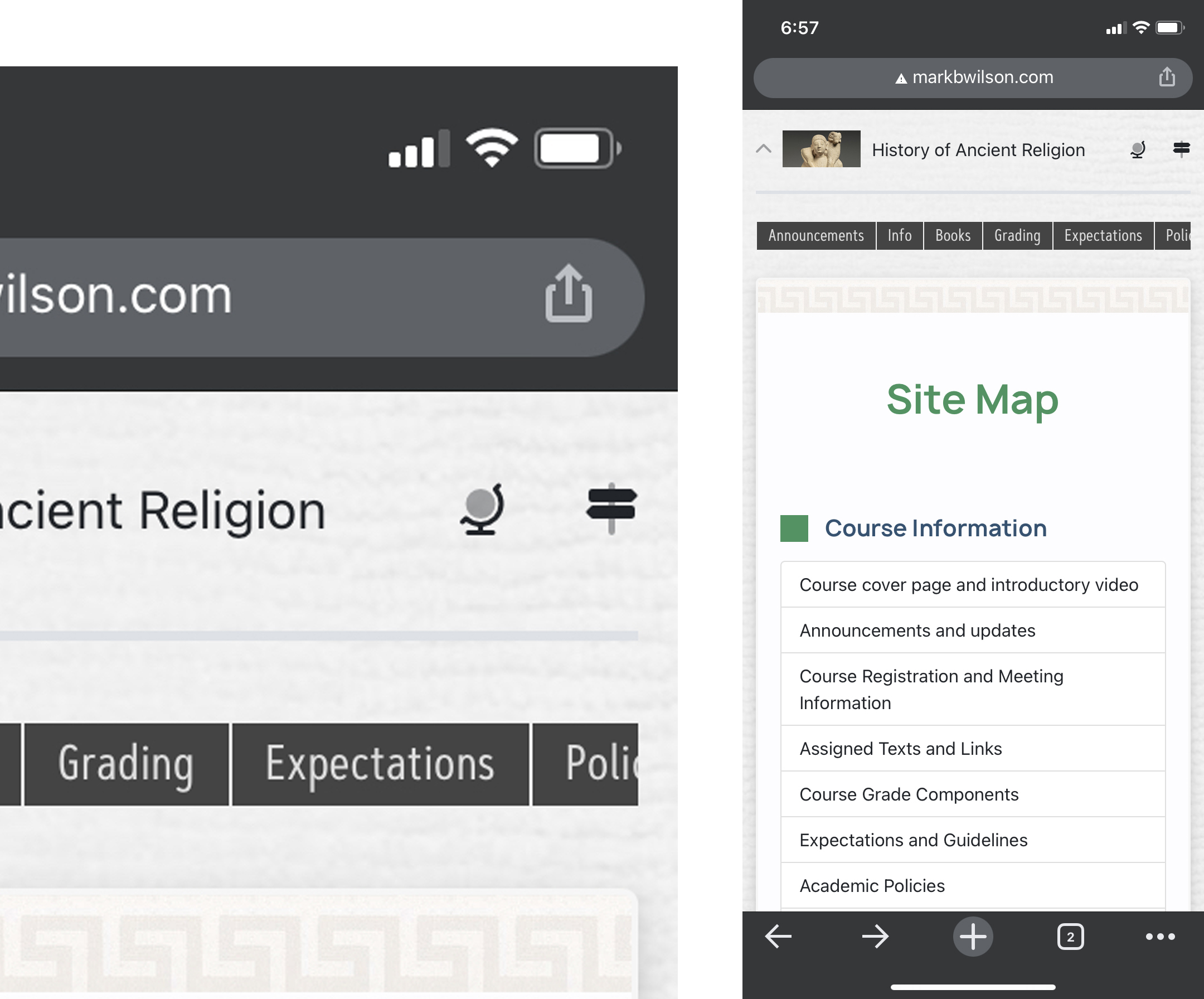
If you’re using the course website on smaller screens, like phones or tablets, you might find the site map a useful way to find the page you need.
The site map icon (which looks like a post with two directional placards on it) is at the top of every page. Tap that and you’ll have a list of all the key pages of the site to scroll through.
In addition, as you may have noticed, that navigation bar—the block of page names at the top of each page—scrolls left and right on smaller screens. If the page you need is out of view, slide the navigation bar left or right.
Remember also that if you want to review any part of the syllabus in a traditional paper format, any page with its own PDF version will also have a printer icon at the top right. All available PDFs are posted on the Print/PDF page.
If you experience any issues with the site, let me know and I’ll do my best to fix them promptly.
Video of this week’s lecture posted
20 September 2022
Once again, I slapped together a quick video of today’s lecture for those unable to attend or who wish to review some of the things discussed later. As before, the audio is unedited.
It is posted on the Videos page on the course website.
Reminder: The Images Essay is due Monday, October 10
19 September 2022
Here are a few brief reminders about the Images essay, which is due very soon on Monday, October 10.
- Watch the video. Make sure to watch the overview video, since that tells you exactly what I am looking for. It’s on the Images Essay page.
- Thesis statement. Make sure you have an introduction with a thesis statement (your argument asserting your position on the question/problem being addressed) and a body that described and discusses three examples from the sources supporting your thesis statement. For models and explanations on how to do this, see “Writing a Position Paper” (a.k.a. “The Elephant Pamphlet”), which is on the Resources page.
- Sources.
- For the museum option, if you can go to a museum in person and view the works directly that is what I strongly prefer, as this option is about your subjective reactions to experiencing the works you are writing about. Remember to choose two works that have the same subject (two priests, two worshippers, two Athenas) but from different times or places so you can talk about the implications of how the same concept was conveyed differently in different times or places.
- For the film option, you need to write about the agenda of the filmmakers and the agenda of the authors of the primary source and how each is using an ancient culture to impress their own beliefs (the filmmakers’ and the authors’) on the audience. If you’re not sure about the primary sources for the film you chose, make sure to come to me and we’ll discuss.
- Requirements for all papers. You must adhere to the requirements for all papers (listed on the Essay Musts page). Not meeting the requirements for all papers will mean a lower grade.
- Template. There is an MS Word template already set up with some of the formatting I require on the Resources page. If you use Word I strongly recommend making use of this template. There is one for Google Docs as well.
- Late papers. As per the syllabus, late papers are marked down by ten points per class meeting, up to a cap of thirty points. Avoid this penalty and block out the time you need to prepare, write, and review your essay so that it can be submitted on time.
- BlackBoard. All essays are uploaded to BlackBoard. Look for “Upload Assignments Here” in the left-hand menu. Your essay needs to be uploaded as a Word (preferred) or PDF file attachment, not pasted in as text submission. If you use a browser-based word processor, you’ll need to download or export to a Word document and upload that.
I’m happy to discuss any aspects of your sources or the essay, so please come to me if there’s anything you’re not sure about. I’m looking forward to hearing your interpretations of your chosen depictions of the ancient world!
Welcome to Week 4!
19 September 2022
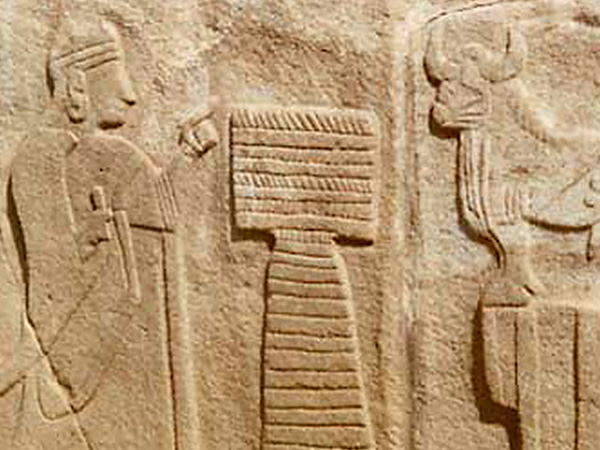
This week we’re looking at religions in contact. This follows up on one of the threads of last week’s topic—namely, what kinds of circumstances might lead to one culture adopting the religious ideas or rituals of another. We know that differences in religious ideology can also lead to conflict and resistance, but the reasons this does or doesn’t happen can be complex. What elements of religion are most likely to be held onto and defended, and what aspects are more amenable to adaptation and synthesis? What does this tell us about the connection between religion and community identity?
We’re also looking at the Hittites, one of the first great Indo-European civilizations to establish itself in the Mediterranean region. Though we can’t study the lost culture of the original Indo-Europeans well, their legacies surviving through their descendant peoples included some interesting religious ideas and structures that had a profound influence on how the Greeks, Romans, and others thought about their gods. Along with that we’ve got a set of brief letters between Hittite rulers and officials about the practicalities and oddities of divination.
Looking forward to discussing all of this with you in class and online. See you Tuesday!
Quiz reminder
17 September 2022
This is a general reminder to the whole class that everyone needs to take and submit the quiz no later than Sunday, 18 September. The link is under Week 3 on the Schedule page. I reply back to acknowledge receipt of the quizzes, so make sure you get that reply back from me.
Just to be clear, the deadline of submitting the quiz by Sunday means that the quiz will be closed after midnight and will not be available to take. If you have not submitted your quiz, please do so before midnight. If you’ve submitted already, you can ignore this message.
Also, make sure you’ve made your second post on this week’s reading! That also needs to be posted by Sunday. The quizzes and the online discussion are both a significant part of the course grade. Any questions or issues, just email me!
Video of this week’s lecture posted
13 September 2022
Using an audio recording of today’s class meeting plus the slides, I slapped together a quick video of today’s lecture for those unable to attend or who wish to review some of the things discussed later. The audio is unedited for my sometimes stammering way of talking—sorry about that.
It is posted on the Videos page on the course website.
Welcome to Week 3!
12 September 2022
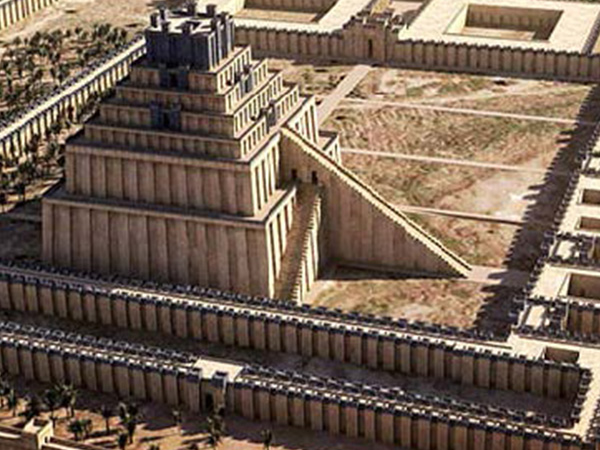
This week we’re looking at polytheism: why it was so prevalent in the ancient world, and how this universality masks the variety of forms it takes. What kinds of factors do you think might shape unique local forms of polytheism?
We’re also looking at the religious perspectives of two great Mesopotamian cultures, Assyria and Babylon. What stands out to you as distinctive about the way these neighboring cultures think about the gods? The Babylonian god Marduk was one of the best-known gods of the ancient world, holding his people in awe and known far beyond the Tigris and Euphrates. What do you think might make a god like Marduk stand out? How does the preeminence of one god or goddess affect the people’s sense of there being many gods with a shared responsibility for the natural world?
Looking forward to discussing all this with you on Tuesday!
Important: More about Gilgamesh
7 September 2022
More on Sumer and Gilgamesh: Since I didn’t get to mention all I intended to about Sumer at this week’s class meeting, I strongly recommend you take a look at the Videos page on the course website and check out the following videos for more background on this week’s reading:
- The Origins of Sumer (9:59)
- The City-States of Sumer (14:54)
- The Epic of Gilgamesh (21:15)
These will give you deeper context for what’s going on with handsome Gilgamesh and petulant Ishtar.
ETA: The videos have also been posted on the reading page itself, and I’ll continue doing that with any relevant contextual videos for all future readsings.
Glitch resolved on posting due dates: A couple of you have given me a heads up that the due dates being shown above the response area were being shown incorrectly. This was a programming error on my part and has been fixed. Your first post is always due the Thursday after class, which in this case it’s Sep. 8, and the second post responding to the discussion is due Sunday—in this case, Sep. 11. Sorry for the confusion.
Have fun with this. Latch on to particular moments and talk about what you find most weird or unexpected. Bring up things the story reminds you of, or things that you know about Sumer or other cultures. What I’m hoping for is a mishmash of ideas and reactions that we can make some sense of with our seconds posts later in the week. Have at it, and don’t let Ishtar tell you you’re pretty!
Welcome to Week 2!
5 September 2022
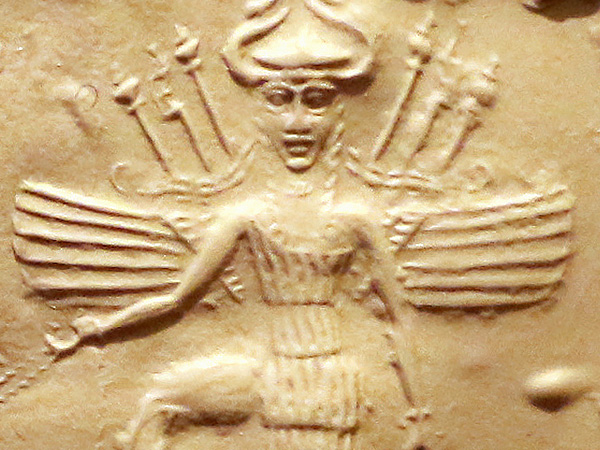
This week we’re taking a look at the idea of religion itself and hoe it manifests in the Mediterranean. What do you think makes these conceptions of the gods turn out so differently from one culture to the next? What do you think might account for all the things Mediterranean religions have in common?
The first stop on our tour as we look closer at different ancient societies is Sumer. What stands out to you most as characteristic of the Sumerian people and their attitude toward the gods?
Our first primary source reading is “Ishtar and the Bull of Heaven”, from The Epic of Gilgamesh. We’ll talk a little about it in class, and then we’ll do the online discussion thing to dig into our reactions to the story and what it might tell us about the folks back in Sumer 4500 years ago. Remember, we’re posting reactions to the reading by Thursday, and a second post with responses and thoughts on the discussion by Sunday. The posts will be made in the discussion area under the “Ishtar” reading. Making posts requires a Disqus account.
Finally: don’t forget to sign up for your responses write up, if you haven’t already! To claim one of the readings for your write-up, go to the sign-up page on the course website. Email me if you have any questions about the write-up or anything else!
This week’s reading
4 September 2022
Just a note to all regarding this week’s reading: Although the schedule makes it look like there’s a reading called “Sumer”, in this case that’s just a description of the section of the “Mesopotamia” chapter. The page numbers for the reading cover just the part of that chapter that pertains to Sumer, the oldest civilization of Mesopotamia.
Welcome to Week 1!
29 August 2022

This is a quick note to welcome you all to the beginning of History of Ancient Religion! I’m looking forward to exploring ideas of the divine in the ancient world with all of you, starting with our first meeting on Tuesday. The meeting is in-person, 1:30 – 2:45 p.m., in Carman 224.
Syllabus and video: As a reminder, the syllabus, assignments, and requirements are all on the course website, which is on my website, markbwilson dot com. Make sure you’ve looked through the site and that you’ve watched the welcome video, which talks about how the course works and answers some common questions.
Books: Also make sure you have the book. It will be getting regular use starting right away, and it shouldn’t be hard to find. The reading assignments on the Schedule page of the website are what you need to have read (and thought about) before coming to class. For this week, that’s taking a look at the introduction and the maps.
Email me: Most of you replied back to the welcome-to-the-course email I sent you after you enrolled, confirming that I have a good email address for you. If you didn’t, could you do me a favor and email me now at mark.wilson@lehman.cuny.edu and let me know that I can use this address, or that that a different email is better for you? Thanks.
Posting online: This is a hybrid course, which means we’ll be meeting in person once a week; our second “meeting” of the week is online and. For this course, our online discussion every week will be responding to a primary source from the time and place we’re looking at that week. More on that in a separate email.
Campus access: You should have received the email from Rene Rotolo underlining what you need to know about campus access. The vaccination, testing, and ID rules are spelled out there, and if you’re a returning student they’re not much changed. When turning up for our class meetings it might make sense to try to arrive on campus a bit early, as there may be lines at the entrances to campus.
That’s it for now, though make sure to check out the second email about the hybrid part of the course. Let me know if you have any questions. I’ll see you all on Tuesday!
Welcome to Week 1! – Addendum: The online part of the course
29 August 2022
Here’s what you need to know about the hybrid part of the course, including what you need to do this week.
Posting online: This is a hybrid course, which means we’ll be meeting in person once a week; our second “meeting” of the week is online. For this course, our online discussion every week will be responding to a primary source from the time and place we’re looking at that week.
Each week’s reading has a Disqus discussion area at the bottom, where you’ll post:
(a) a reaction to the reading and what you find interesting, unexpected, or strange about it, to be posted by Thursday; and
(b) a second post reacting to what people have brought up in earlier posts and offering your thoughts on what we can glean from this reading as a way of understanding the culture and time it came from.
Make your first post this week (just a hello): To be involved in the discussion, you will need a free Disqus account. This week, go ahead set up your account if necessary and follow the “Say hello online” on the Schedule page on Week 1 to test your ability to post and also give everyone a hello. You can say a bit about yourself as well if you want, but the key thing is to make sure you’re having no trouble posting.
Sign up now for your responses write-up: There is a sign-up page on the course website for your response write-up. Everyone needs to sign up for one reading from the semester where you write a summary of what we discussed and figured out in the online discussion of that week’s reading. You can get the sign-up for that out of the way now and choose the one that seems interesting to you. As always, I’m grateful to those who pick the earlier ones! If you have questions, we’ll talk more about responses, the write-up, and the rest of the course components on Tuesday.
Welcome to History of Ancient Religion!
1 August 2022
I’m looking forward to an interesting semester exploring the religions of the ancient world and how they shaped their cultures, interactions, and daily lives.
This course is a hybrid course, so part of the course is in person every week and part of it is online. Physical attendance in our class meetings is a critical part of the course, so if that’s not something you’re up for this course may not be for you.
Right now, I need you to do three things.
First, look over the course web page, which will be our base of operations. Watch the quick welcome and orientation video (also linked below). Look through each of the pages on the website to see how the course will work, and make sure to click through to the schedule page to see how the readings, class meetings, and online discussions are set up. Any questions about how it works, please send me an email.
Second, get the books now if you can. A lot of you will be ordering books online, and you need to make sure you have the books and are ready to go when the course starts on August 30. On the “Books” page I’ve tried to give you lots of different options for getting what you need, but consider ordering now if there’s going to be any kind of shipping involved. (If you come across a legitimate online/e-text version of one of the assigned readings that’s not already listed, please let me know.)
Finally, send me an email so that I know I have a working email address for you. You can just send a blank email, email and say “hi”, or email with a question or concern, but I want to make sure I can contact everyone. If you receive an email from me but there is an email address you prefer I use instead of this one, please definitely reply and tell me that.
Email me anytime with questions. I’m looking forward to starting our journey together.
Welcome to History of Ancient Religion!
8 June 2022
This where I’ll be posting announcements, updates, and important information for each week of the course. Bookmark this page your entry point to the course website to make sure you’re up to date.